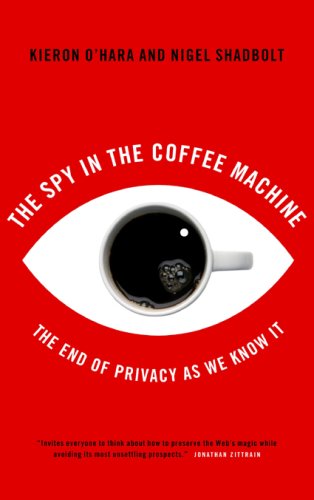Arjen Vrielink and I write a monthly series titled: Parallax. We both agree on a title for the post and on some other arbitrary restrictions to induce our creative process. For this post we agreed to write about things we cannot live without. The restriction is that the things should have a hierarchical relationship where the lowest level of hierarchy is the microprocessor and the highest level is the Internet. Each thing should be described in 100 words. You can read Arjen’s post with the same title here.
Please don’t take the title of this post too literally: yes, even I realise that I will be able to live without these things. Instead consider this a tribute to these five things. Also be aware that the title is not “The 5 Things I Cannot Live Without”, there are many other things that I find way more useful and crucial (think bed, dishwasher, etc.).
So here goes, in a loose hierarchy from local to global:

1. The Microprocessor
What do you know about the microprocessor? If it as much as I used to, then it will be very little! Did you know that the first microprocessors appeared in the early seventies and that they were mostly used for calculators? Did you know that their capacity follows Moore’s law? Did you know that microprocessors not only integrated in computers, but also in cars, toasters, TVs, dishwashers (again!) and most other electrical equipment with some advanced functionality? Finally, did you know the Wikipedia article for Microprocessors needs additional citations and references? Why don’t you get to work and fix it?
2. My iPhone
I don’t think I have yet waxed lyrical about my iPhone. First of all I am late to the party: I have only bought one last December. This is because I resisted buying a closed down Apple product for as long as possible. I really really wanted to buy an Android phone, but all the ones that I tried were seriously less capable than the iPhone. So why is it that much better? Because thought has been put into every single element of the software and hardware design. Nothing is accidental, everything is considered. No other company is there yet.
3. Xs4all
My Internet provider is XS4ALL. There are a couple of reasons why this will be the case for the foreseeable future (even though their price/speed ratio is not competitive):
- XS4ALL is consistently the best provider in the Netherlands.
- Their corporate values and activism are excellent. See this campaign for an example.
- They have repeatedly shown they have a backbone. Their support of Karin Spaink in her Scientology case is the best example of this.
- Innovation is important to them.
- When you call their helpdesk (at a number which has normal rates), you get competent staff.
4. Google Services
Over the last couple of years I have come to rely more and more on Google’s services. So much so that it has become increasingly hard to even list all the Google services that I have an account for or use regularly otherwise. As an excercise I have used this Wikipedia page to list all the products I use regularly (on Ubuntu or iPhone): Chrome, Sketchup, Gears, Calendar, Gmail, Product Search, Reader, Apps, Feedburner, Youtube, OpenSocial, Maps, Aardvark, Alerts, Translate, Groups, Image Search, Scholar, Web search, Analytics, Gapminder, Trends and Zeitgeist. Couldn’t be bothered to link them all: Google them!
5. The Internet
It is a cliché to call the Internet a “game changer”. However, it cannot be denied that it is the most disruptive technology out there. It creates feasibility spaces for social practice (thank you Benkler) and it forces you to rethink traditional ways of doing things. In the field of educational technology for example it has led to, among other things, new course paradigms, an Edupunk movement and deep critiques of the learning function. We cannot fathom what the near future of the Internet will look like as the pace of change is continually accelerating. I cannot wait for it!
P.S. This post was inspired by Techcruch’s Products I Can’t Live Without.
